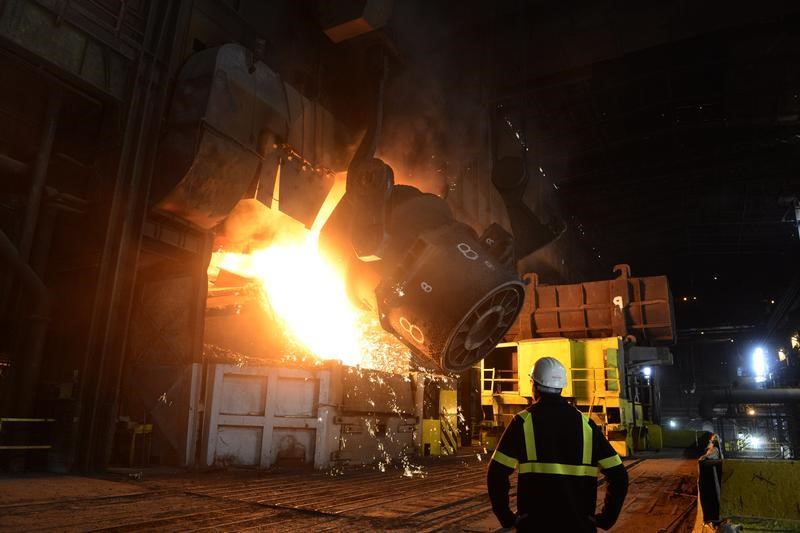* Shanghai rebar hits two-month high
* Chinese steel mills getting "quite good" level of orders -trader
* China plans to cut steel capacity by half in 28 cities (Adds China's plan to reduce steel capacity, updates prices)
By Manolo Serapio Jr
MANILA, Feb 13 (Reuters) - Iron ore futures in China surged nearly 7 percent to their highest in more than three years on Monday, tracking firmer steel prices as investors bet demand for the building material would remain strong.
Both commodities stretched last week's gains and traders said the uptrend could continue in the short term.
"Mills' booking orders are quite good and they're trying to produce as much as possible," said an iron ore trader in Shanghai.
"People are expecting demand in the spring will be strong."
The most-active rebar on the Shanghai Futures Exchange SRBcv1 closed up 4.4 percent at 3,437 yuan ($499) a tonne. It earlier rose as far as 3,451 yuan, its loftiest since December last year.
Iron ore outpaced the construction steel product, with the most-traded contract on the Dalian Commodity Exchange DCIOcv1 climbing 6.7 percent to end at 712.50 yuan a tonne, just off a session high of 713 yuan, its strongest since October 2013.
Chinese steel mills were also replenishing their stocks of iron ore after the Lunar New Year break earlier this month, traders said.
China said it would continue to push its "One Belt, One Road" initiative - promoting infrastructure projects along historical land and sea trade routes - and deepen cooperation with countries along the belt.
The country will also invest over one trillion yuan ($145.30 billion) in transport in 10 mid-west provinces this year as part of a poverty-reduction plan, the Economic Information Daily newspaper reported, citing the local government. ore for delivery to China's Qingdao port .IO62-CNO=MB jumped 3.3 percent to $86.62 a tonne on Friday, its strongest since August 2014, according to Metal Bulletin.
China plans to cut steel capacity by at least half in 28 cities across five regions during the winter heating season, which normally lasts from late November to late February, as Beijing intensifies its war on smog, a draft policy document shows. ($1 = 6.8842 Chinese yuan)
